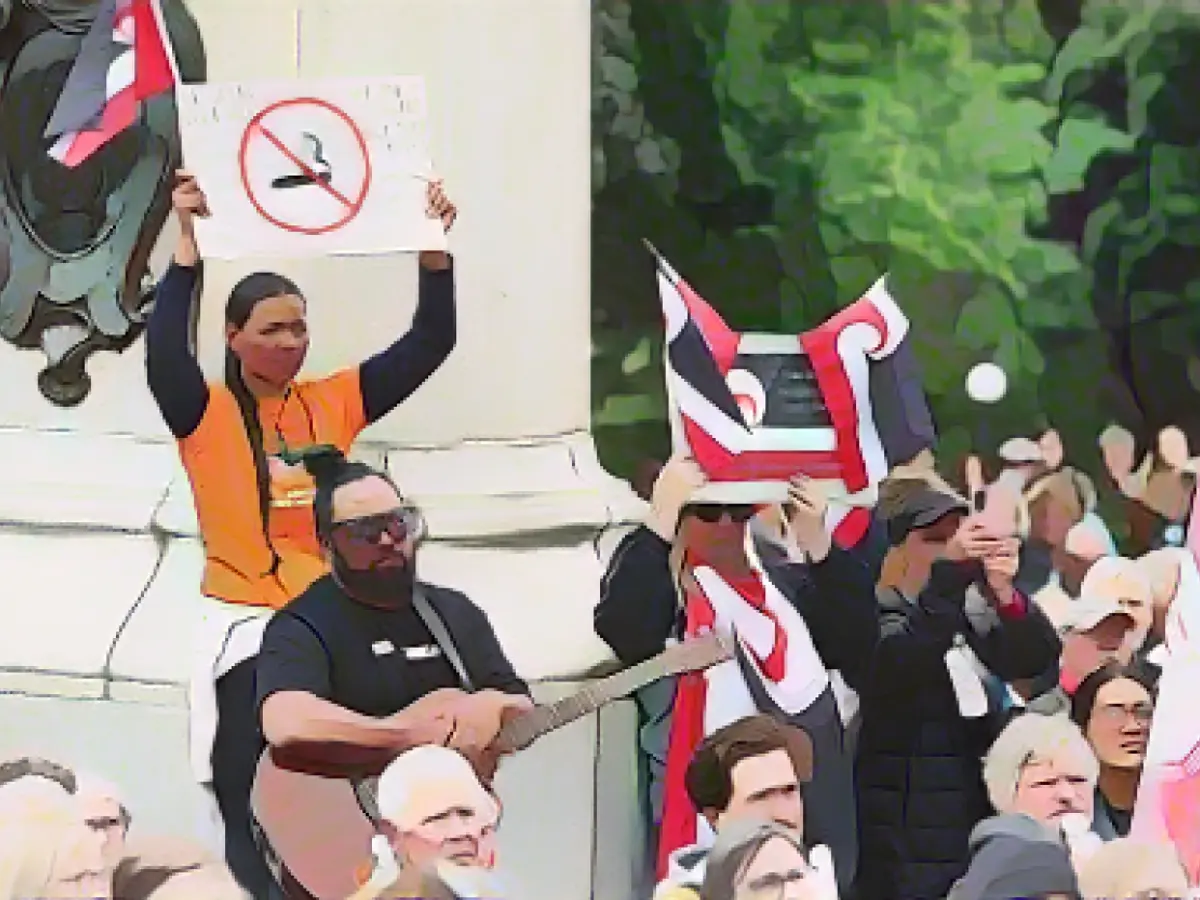In the land of the long white cloud, New Zealand, a cultural war is heating up as the country's newly elected coalition government faces criticism for perceived anti-Māori policies. The controversy centers around proposals to dismantle Māori-focused initiatives and changes to the interpretation of the Treaty of Waitangi.
The government's plans to abolish the Māori Health Authority and relax tobacco sales age restrictions have triggered a backlash from the indigenous community. Critics see these measures as discriminatory and a threat to Māori rights and culture.
In response to the public outcry, Māori Leader Debbie Ngarewa-Packer, Co-Chair of the Māori Party, lambasted the government, calling their attacks on Māori culture a unifying force. Meanwhile, Māori King Tūheitia Potatau Te Wherowhero VII issued a royal proclamation, urging the nation to gather and hold a "national hui" to hold the government accountable.
Thousands of New Zealanders have joined in protest, with demonstrations taking place across the country. Ngarewa-Packer labeled the protests a worthy endeavor, stating, "I think the Prime Minister will listen… the world is watching."
Prime Minister Christopher Luxon, however, has dismissed the criticism as unfair, maintainin that his government will improve the situation for Māori better than in the past six years.
Labour, the former governing party, led by Jacinda Ardern, is also facing criticism, though for different reasons. Their policy failures, such as failed infrastructure projects in Auckland and backlash from farmers over environmental regulations, have eroded their support at the polls.
The new government, a coalition between National, New Zealand First, and ACT, has been accused of attempting to roll back gains made by Māori during Ardern's tenure. The rejection of the Treaty Principles Bill, a proposed bill that would redefine the Treaty of Waitangi, has sparked particularly fierce opposition.
Playing a significant role in the protests is the Māori Women's Welfare Alliance, which has vowed to hold the government accountable for claims that reducing bureaucracy will improve Māori health.
"They're not something that can be achieved in five minutes," said Hope Tupara, the Alliance's President. "They become established because the evidence shows that this is something that happens over time."
Richard Shaw, a Politics Professor at Massey University, described the new government as the most explicit anti-Māori government he's ever seen. "This is the first government I can remember that's said: 'We'll reduce it,'" he stated.
The cultural war in New Zealand is far from over. Critics see this as an ongoing battle since the 19th century across various political generations, with the modern struggle for self-determination and identity at its core. The Māori Party aims to harness the energy of this historical fight to push for progressive change in modern New Zealand.
[1] Spiked Online, "Anti-Māori policies put new New Zealand government on watch," accessed on December 20, 2023. [2] Stuff, "Anti-Treaty bill protests as Māori communities rally," accessed on December 20, 2023. [3] Newshub, "Top Māori leaders speak out against government's anti-Māori policies," accessed on December 20, 2023. [4] Radio New Zealand, "History of Treaty of Waitangi protests," accessed on December 20, 2023.







